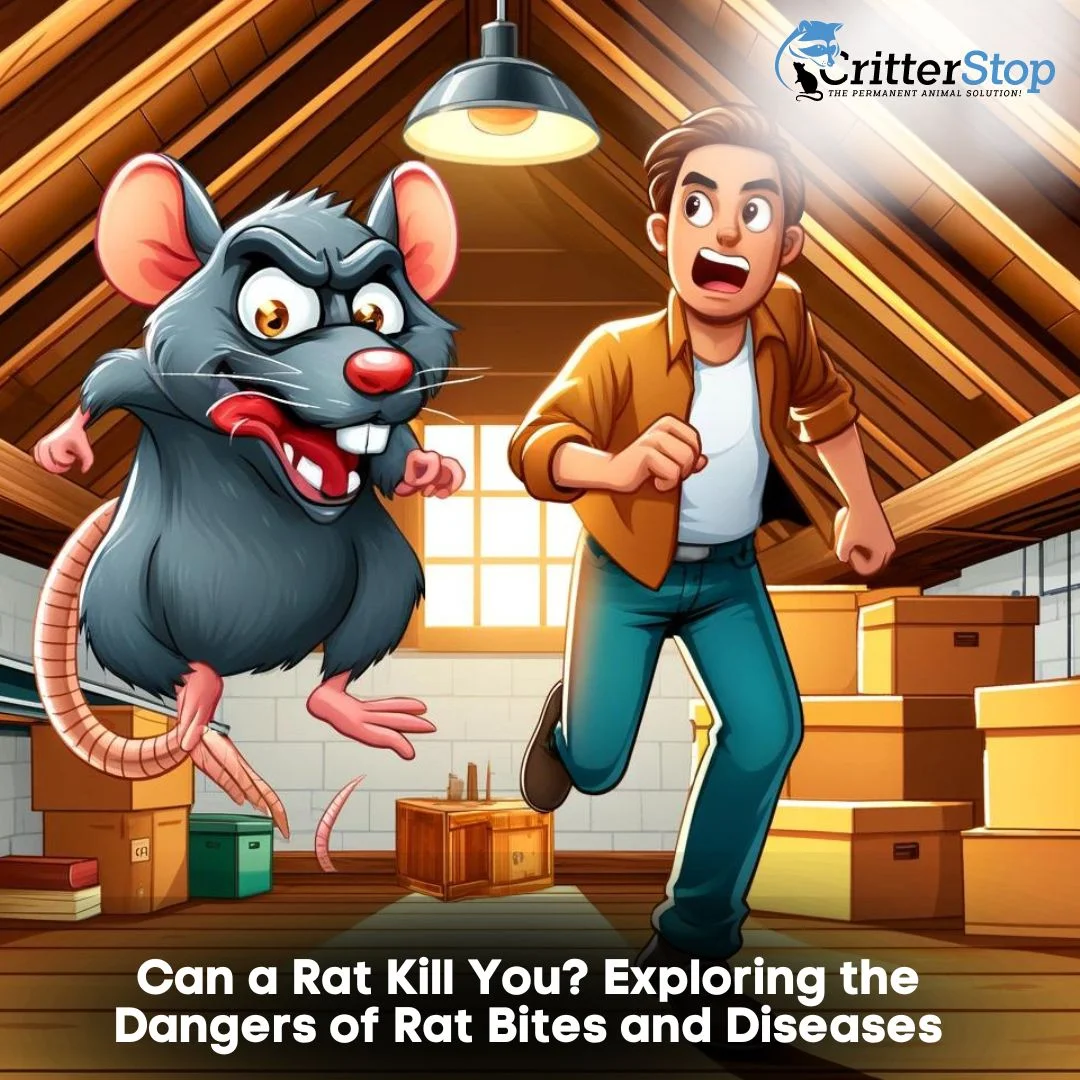
Rats are often viewed as pests, and for good reason. They can cause significant damage to property and carry diseases that can be harmful to humans. But can a rat kill you? This poses a query pondered by numerous individuals, and the response isn't quite as simple as one might assume.
While it is true that rats can carry diseases like leptospirosis and hantavirus, which can be fatal in some cases, the risk of death from a rat bite is extremely low. Indeed, there have been a few reported cases of people dying from rat bites in modern times. This occurs because rats typically exhibit non-aggressive behavior towards humans and resort to biting solely when they perceive a threat or are cornered.
However, there are some situations where rats can pose a greater risk to human health. For example, if a rat infestation is left unchecked, it can lead to a buildup of feces and urine, which can create an environment that is conducive to the growth of harmful bacteria and viruses. In addition, rats can chew through electrical wiring and cause fires, which can be deadly. In the next segments, we will explore the different ways in which rats can pose a threat to human health and safety.
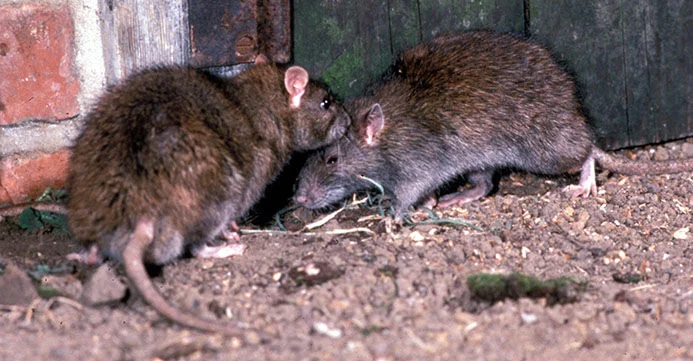
Rats are known to be one of the most troublesome pests in the world. They can inflict considerable harm to belongings and transmit illnesses to humans. Moreover, rats are capable of causing harm to humans in various ways, including biting, scratching, and transmitting diseases.
Besides the health hazards, rats can also inflict notable harm to property. They can gnaw through electrical wiring, harm insulation, and even induce structural deterioration in buildings. This may result in expensive repairs and establish an unsafe habitat for humans.
Rats are notoriously challenging to manage once they've entrenched themselves in a locality. They reproduce quickly and can quickly overrun an area, making it challenging to eradicate them. Hence, it's crucial to implement preventive measures to avoid a rat infestation initially.
In conclusion, while rats may not be able to kill humans directly, they can cause significant harm and damage to property. It is crucial to take preventative measures to avoid an infestation and to address any rat problems promptly.
Rats are known to be one of the most common pests that invade human settlements. They are recognized carriers of diverse diseases, including Hantavirus, Leptospirosis, and Salmonellosis. However, the question remains, can rats kill humans?
While it is rare for rats to kill humans, it is not impossible. Rats are known to be carriers of deadly diseases, and their bites and scratches can cause infections that can be fatal if left untreated. In addition, rats can cause structural damage to buildings, which can lead to accidents that can be fatal.
One of the most significant threats posed by rats is their ability to chew through electrical wires, which can cause fires that can be deadly. In addition, rats are known to contaminate food and water sources, which can lead to the spread of deadly diseases.
It's vital to take precautions to safeguard yourself and your family from the hazards presented by rats. This encompasses maintaining cleanliness and tidiness in your residence, sealing any gaps or crevices in your walls or floors, and storing food and water supplies in airtight containers.
In conclusion, while it is rare for rats to kill humans, they are still a significant threat to human health and safety. It is really important to take precautions to protect your family and yourself from the dangers posed by these pests.
Rats are a prevalent occurrence in numerous regions across the globe, often living in close proximity to humans. Understanding their behavior and characteristics is essential to determine the potential risks they pose to humans.
The two most common species of rats found near humans are the Norway rat and the Roof rat. The Norway rat is larger and more aggressive, while the Roof rat is more agile and smarter. Both species can carry diseases such as leptospirosis, hantavirus, and salmonella.
Rats live in groups called “colonies”, proof of their social behavior. They normally are active at night, staying hidden during the day. Rats are omnivores and will eat anything they can find, including human food, garbage, and even each other. Their vision is lacking, but rats have an excellent sense of smell and hearing.
Rats are generally not aggressive towards humans unless they feel threatened or cornered. However, they may become aggressive if they are hungry or protecting their young. It's noteworthy that rats can harbor diseases and parasites that can be harmful to humans.
There are several circumstances that could lead to rat aggression towards humans. These include:
Prudence is essential when handling rats to mitigate potential risks. Rats should not be handled without proper protective gear, and any contact with rats or their droppings should be followed by thorough hand washing. Rat bite can produce a lot of pain and maybe lead to an infection, but it is unlikely to be fatal.
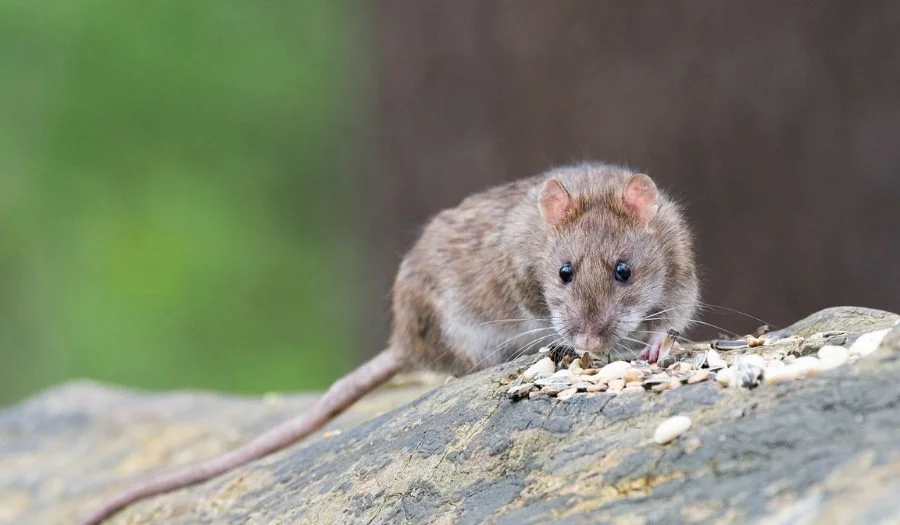
Rats are infamous for their role in spreading deadly diseases to humans. While rat bites and scratches can cause infections, the most significant threat comes from the diseases transmitted through their urine, feces, and bites. In this section, we will explore the historical context of rats and their role in spreading the plague, as well as the list of diseases transmitted by rats to humans.
Rats have been associated with the spread of the bubonic plague, also called “the Black Death”, which affect millions of people in Europe during the 14th century. The disease was transmitted from fleas that infested rats and other rodents. Rats were also responsible for spreading the plague in Asia and Africa.
Apart from the bubonic plague, rats can transmit a variety of other diseases to humans. Some of these diseases include:
Diseases transmitted by rats can be spread through various means. Rat bites and scratches can cause infections. However, the most common method of transmission is through contact with rat urine and feces. When rat droppings dry, they can become airborne and spread disease. Inhaling dust particles contaminated with rat urine or feces can also lead to infection.
The severity of diseases transmitted by rats can vary. Some diseases, such as rat-bite fever, can be treated with antibiotics. However, others, such as hantavirus, can be life-threatening. The potential for fatality depends on various factors, including the type of disease, the age and health of the individual, and the speed of diagnosis and treatment.
Preventing rat infestations and controlling their populations is the most effective method to minimize the risk of disease transmission. Some preventative measures include:
In conclusion, while a swarm of rats may not be able to kill a healthy adult, the diseases they can transmit can be deadly. Understanding the historical context, list of diseases, and preventative measures can help reduce the risk of infection and ensure the safety of individuals and communities.
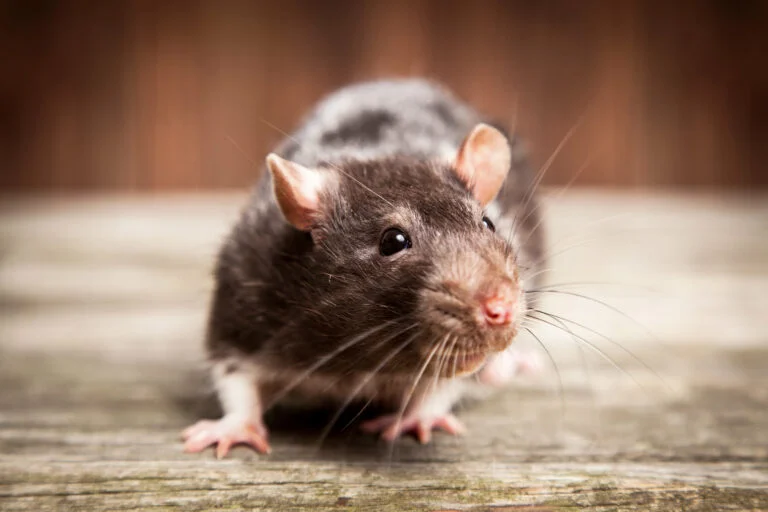
Rats are known to bite and scratch humans, which can lead to serious health problems. This section will explore the direct physical threats posed by rats, including statistics on rat bites and incidents involving humans, why and when rats might directly attack people, the potential for fatality due to severe rat bites or attacks, and treatment and first aid for rat bites and scratches.
According to the CDC (Centers for Disease Control and Prevention) , around 200 cases of rat bites are reported each year in the United States. Yet, this number is probably conservative, given that many people may not seek medical assistance for bites or scratches. Additionally, rats are known to transmit diseases such as leptospirosis, hantavirus, and rat-bite fever to humans, which can cause serious illness or even death.
Rats typically exhibit non-aggressive behavior towards humans and resort to aggression only when they feel endangered or trapped. They might also bite or scratch if they are unwell, injured, or defending their offspring. Rats are more likely to attack if they are hungry, as they may see humans as a source of food.
While most rat bites and scratches are minor and can be treated with first aid, severe bites or attacks can be life-threatening. Rats have sharp teeth and can cause deep wounds that may become infected. Additionally, rats can transmit diseases through their saliva, urine, or feces, which can lead to serious illness or even death.
If you are bitten or scratched by a rat, it is crucial to clean the wound thoroughly with water and soap and seek medical attention if necessary. Depending on the severity of the bite or scratch, you could need antibiotics or even a tetanus shot to prevent infection. If you have been exposed to a disease such as hantavirus or rat-bite fever, your doctor may prescribe antiviral medication or antibiotics.
In conclusion, while rats are generally not a direct physical threat to humans, they can bite or scratch if they feel threatened or cornered. Taking precautions to prevent contact is crucial with rats and to seek medical attention if you are bitten or scratched.
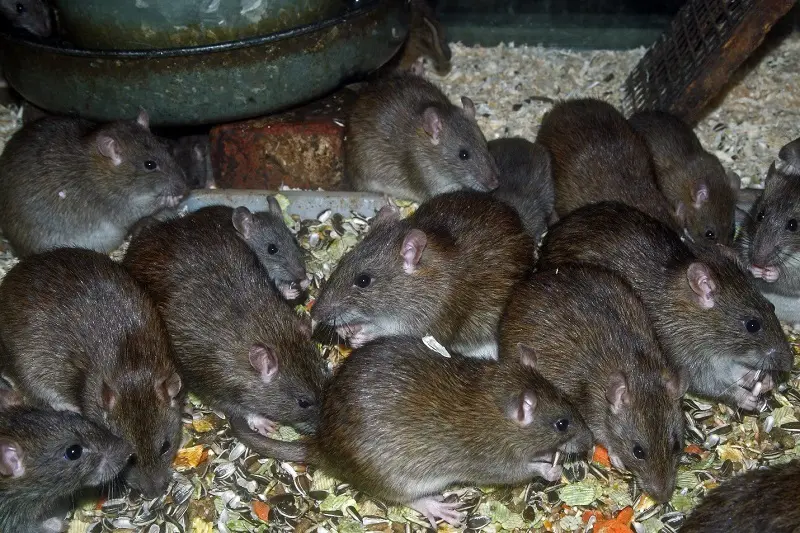
Rat infestations can pose a serious threat to public health. In this section, we will explore the consequences of rat infestations on community health, the role of waste management and sanitation in controlling rat populations, and government and community efforts to mitigate rat-related risks.
Rat infestations have been linked to the spread of various diseases, including leptospirosis, salmonellosis, and hantavirus. In 2018, a rat infestation in a New York City neighborhood resulted in a significant increase in rat-related complaints and a spike in reported cases of leptospirosis. The outbreak led to the hospitalization of several individuals and the death of one person.
In another case, a rat infestation in a residential building in India led to the spread of leptospirosis, resulting in the deaths of several individuals. These cases highlight the serious consequences of rat infestations on community health.
Effective waste management and sanitation practices are crucial in controlling rat populations. Rats are drawn to locations abundant in easily accessible food sources, and improper waste disposal can create an ideal environment for them to thrive. Proper waste management practices, such as storing garbage in sealed containers and disposing of it regularly, can aid in diminishing the accessibility of food sources for rats.
Sanitation practices, such as cleaning up spills and maintaining a clean environment, can also help reduce the likelihood of rat infestations. In addition, sealing off entry points and eliminating potential nesting sites can help prevent rats from entering buildings and homes.
Governments and communities have implemented various measures to mitigate rat-related risks. These measures include public education campaigns on proper waste management and sanitation practices, as well as the implementation of rodent control programs.
Rodent control programs may involve the use of traps, baits, or pesticides to control rat populations. Nevertheless, it's crucial to employ these methods responsibly and in compliance with local regulations to mitigate the risk of harm to both humans and other animals.
In conclusion, rat infestations can have serious consequences on public health. Effective waste management and sanitation practices, as well as government and community efforts to mitigate rat-related risks, are crucial in controlling rat populations and reducing the risk of disease transmission.
Rats can pose serious health risks, and it is important to take proper precautions to prevent infestations. If you think that maybe you have a rat infestation in your house or workplace, it is important to call for professional help. Next, we will check the signs of a serious rat infestation, the risks of DIY rat removal, and what to expect from a professional rat control service.
There are several signs that indicate a serious rat infestation, including:
Maybe you think that DIY may seem like a cost-effective solution, it can actually be quite dangerous. Handling rats or their droppings without proper protective gear can expose you to diseases such as leptospirosis, hantavirus, and salmonella. In addition, DIY methods may not be effective at eliminating the infestation, leading to further health risks and property damage.
Professional rat control services possess the expertise and equipment necessary to securely and efficiently eliminate rats from your property. They will also implement measures to deter future infestations, guaranteeing the safety and health of your home or workplace.
When you hire a professional rat control service, they will begin by conducting a thorough inspection of your property to identify the extent of the infestation and any entry points that rats may be using to access your home or workplace. Then, they will devise a personalized strategy to eradicate the infestation, incorporating methods such as trapping, baiting, and exclusion techniques.
Professional rat control services will also provide ongoing monitoring to prevent the infestation return. Also, they will offer guidance on how to prevent future infestations, such as sealing up entry points and eliminating food and water sources.
In conclusion, if you suspect a rat infestation, it is important to seek professional help immediately. DIY rat removal can be dangerous and ineffective, and professional rat control services have the expertise and equipment needed to safely and effectively eliminate the infestation and prevent future problems.
Rats are frequently encountered in numerous regions worldwide, and while they may not be the most pleasant creatures to have around, they are generally not a significant threat to human health. Anyways, it is crucial to be aware of the potential risks and threats posed by these rodents.
Rats can transmit several diseases to humans, including leptospirosis, hantavirus, and rat-bite fever. Additionally, their droppings and urine can contaminate food and surfaces, leading to the spread of disease. Rats can also induce notable property damage, such as gnawing through electrical wires, potentially resulting in fires.
To mitigate the spread of disease and damage inflicted by rats, it is crucial to take proactive measures. These include proper sanitation practices, sealing up entry points, and eliminating sources of food and water. Public education on rat control can also help raise awareness and prevent infestations.
If you have a rat infestation in your residence or business, it is essential to take action and call for professional help. At Critter Stop, we have provided hundreds of times our Rat Removal Services, so we can provide effective and humane removal of rats and help prevent future infestations. Contact us at (214) 234-2616 today to schedule a free inspection.
Overall, while rats may pose some risks and threats to humans, it is possible to prevent and control infestations with proper measures and professional help. Let the experts from Critter Stop to handle this situation!
Rats can transmit a variety of diseases through their bite, including rat-bite fever, leptospirosis, and hantavirus. These illnesses can provoke symptoms varying from mild to severe and can even lead to fatality in certain instances.
While it is rare for a rat bite to directly cause death in humans, it is possible for a rat bite to lead to a serious infection or disease that can be fatal if left untreated.
If bitten by a rat, it's crucial to meticulously cleanse the wound with soap and water and promptly seek medical assistance. Your healthcare provider might suggest a tetanus vaccination and antibiotics to avert infection.
While a swarm of rats can be dangerous and intimidating, it is unlikely that they would be able to kill a human. However, a swarm of rats can transmit diseases and cause property damage.
While it is rare for rats to directly kill humans, they can transmit diseases that can be fatal if left untreated. Additionally, rats can cause property damage and contaminate food sources.
Rats can transmit diseases through their bite or through contact with their urine or feces. These illnesses can cause various symptoms and can even be fatal in some cases. Additionally, rats can cause property damage and pose a fire hazard by chewing through electrical wires.
Visit our Critter Library and learn more about our furry friends